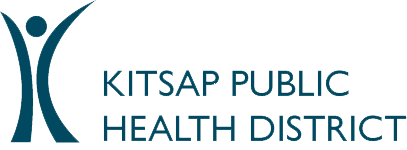
Dec. 19, 2023
The CDC released a Health Alert on Dec. 14, 2023 to alert healthcare providers to low vaccination rates against influenza, COVID-19, and RSV (respiratory syncytial virus). See the background section below for details.
ACTIONS REQUESTED
BE AWARE that low vaccination rates, coupled with ongoing increases in local, national, and international respiratory disease activity caused by multiple pathogens, including influenza viruses, SARS-CoV-2 (the virus that causes COVID-19), and RSV, could lead to more severe disease and increased healthcare capacity strain in the coming weeks.
RECOMMEND influenza, COVID-19, and RSV immunizations to your patients if appropriate.
CONSIDER carrying influenza, COVID-19, and RSV immunizations in your practice to offer and administer to eligible patients.
RECOMMEND antiviral medications for influenza and COVID-19 to all eligible patients, especially patients at high-risk of progression to severe disease such as older adults and people with certain underlying medical conditions.
RECOMMEND testing and other preventive measures to your patients, including covering coughs and sneezes, staying at home when sick, improving ventilation at home or work, and washing hands to protect themselves and others against respiratory diseases.
BACKGROUND
Respiratory disease activity in the United States is on the rise for several respiratory pathogens, including influenza viruses, SARS-CoV-2, and RSV, across multiple indicators such as laboratory test positivity, emergency department visits, wastewater, and hospitalizations. Similar increases have been observed in Washington State and in Kitsap County.
RSV
Locally, RSV has been rising rapidly over the past few weeks, and is approaching seasonal peak.
Fewer than one in five Kitsap residents over age 60 have received a dose of RSV vaccine since August 2023. CDC recommends that adults aged 60 years and older may receive a single dose of RSV vaccine using shared clinical decision-making. Additionally, people who are pregnant can receive an RSV vaccine during week 32 and through week 36 of pregnancy, which can protect infants through their first six months of life. This is especially important given supply issues with nirsevimab this season.
For infants up to 8 months old, CDC recommends one dose of nirsevimab as they enter their first RSV season. A second dose may be recommended for toddlers aged 8-19 months before they enter their second RSV season if they have lung, heart or immune problems.
Last respiratory season, there were over 500 emergency department (ED) visits in Kitsap County for RSV, the majority of which were children under age five.
INFLUENZA
Influenza activity has begun to rise over the past few weeks and has already been associated with two laboratory-confirmed deaths in Kitsap County.
As of 12/12/2023, less than one-third of Kitsap County residents have received a 2023-24 seasonal flu vaccine. Statewide data show widely different coverage across age groups: while an estimated 53% of Washington residents 65 and older have received a seasonal flu vaccine, only 14% of adults aged 18-34 have a seasonal flu dose documented in WA IIS.
People considered at increased risk for flu complications include adults aged 65 and older, people who are pregnant, and adults with certain chronic health conditions such as asthma, diabetes and chronic heart or kidney disease. It is important for everyone who is able, whether they are at higher risk of flu complications or not, to get vaccinated to reduce transmission in the community.
Last respiratory season, 542 people visited the ED in Kitsap County for influenza, with the highest rate among children under five. Although timing varies from year to year, influenza activity generally peaks between December and February.
CDC estimates that influenza causes between 100,000 and 710,000 hospitalizations each respiratory season and between 4,900 and 52,000 deaths.
COVID-19
Local COVID-19 indicators have remained relatively stable since spring of this year, with fewer than 10 Kitsap County hospital admissions per week for COVID-19, and relatively few deaths. Although this is a huge improvement compared to even one year ago, it is important to keep in mind that COVID-19 ED visits and hospitalizations still currently account for more than those attributed to flu and RSV combined.
Congregate living settings such as long-term care facilities are particularly vulnerable to COVID-19, as respiratory viruses can very quickly spread among the medically vulnerable population without prompt infection prevention measures. Five COVID-19 outbreaks have been declared in long-term care facilities (LTCFs) in the past four weeks.
DOH estimates that fewer than one in six Kitsap residents are up to date on CDC-recommended COVID-19 vaccines. For all people, regardless of age and previous vaccine COVID vaccine status, this includes one dose of an updated COVID-19 vaccine to protect against serious illness from COVID-19. Only around 6% of Kitsap children and youth under age 18 and 41% of Kitsap residents aged 65 and older have received an updated COVID-19 dose. In over half of Washington Counties, fewer than 10% of the population has received an updated dose.
COVID-19 has contributed to over 450 deaths in Kitsap County since 2020.
Recommendations for healthcare providers
The CDC, Washington State Department of Health, and the Kitsap Public Health District recommend healthcare providers to proactively message the importance of receiving recommended seasonal vaccines.
Immunizations can prevent hospitalization and death associated with influenza, COVID-19, and RSV. These immunizations are especially important for people at increased risk for severe disease, including infants, older adults, pregnant people, and people with certain underlying medical conditions. COVID-19 vaccination can also reduce the chance of multisystem inflammatory syndrome in children (MIS-C) and post-COVID conditions.
- Providers should leverage all available tools to increase immunizations against influenza, COVID-19, and RSV. CDC has developed communication tools including a conversation guide and immunization call-back message template to aid provider efforts in increasing immunizations in their patient populations.
- Healthcare providers should administer influenza, COVID-19, and RSV immunizations now to all eligible patients.
- Providers are encouraged to report cases of multisystem inflammatory syndrome in children (MIS-C) to their jurisdictional health department. For MIS-C, a new CSTE/CDC MIS-C case definition went into effect in January 2023 and updated MIS-C treatment guidelines were released in July 2023. Providers can consult with state and local health departments about suspect cases.
- Antiviral medications are currently underutilized but are important to treat patients, especially persons at high-risk of progression to severe disease with influenza or COVID-19, including older adults and people with certain underlying medical conditions.
- The Centers for Disease Control and Prevention (CDC) recommends nirsevimab should be used for any eligible baby. Doses should not be saved for those at highest risk, as this may lead to unused or wasted doses. If you aren’t using this product on hand or have more product than needed, please redistribute it to other clinics or facilities in need. You can use the vaccine advertisement tool in the WAIIS to advertise doses you aren’t using or to search for available doses to transfer. Find directions on using the tool here.
- Healthcare providers should counsel patients about other everyday preventive actions they can do to protect themselves against respiratory diseases including testing, covering coughs and sneezes, washing hands wearing a well-fitting mask if a patient chooses to wear a mask, and improving ventilation in home and work environments.
ADDITIONAL RESOURCES
- CDC’s Respiratory Virus Activity Levels dashboard
- CDC’s Healthcare provider toolkit for preparing patients for fall/winter viruses
- National Institutes of Health’s Test to Treat program
- Washington State Department of Health (DOH)’s COVID-19 Infection Prevention in Health Care Settings guide
- DOH’s Respiratory Illness Data dashboard
- Kitsap Public Health District’s Respiratory Illness page
CONTACTING THE HEALTH DISTRICT
Call us at 360-728-2235 and leave a message to report notifiable conditions 24 hours a day, 7 days a week.
For immunization specific assistance, including vaccine ordering, special situations, or for technical advice on immunizations in general, call our Immunizations line at 360-728-2007, we respond to inquiries within 2 business days
Fax us at 360-813-1168 with the same information.
This advisory is also posted on the health advisory page of our Provider Resources website, providers.kitsappublichealth.org.
